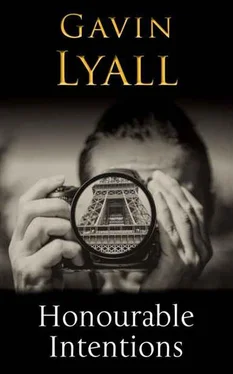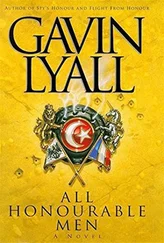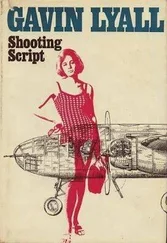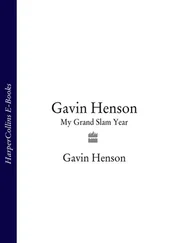Gavin Lyall - Honourable Intentions
Здесь есть возможность читать онлайн «Gavin Lyall - Honourable Intentions» весь текст электронной книги совершенно бесплатно (целиком полную версию без сокращений). В некоторых случаях можно слушать аудио, скачать через торрент в формате fb2 и присутствует краткое содержание. Год выпуска: 2014, Издательство: PFD Books, Жанр: Шпионский детектив, Исторический детектив, на английском языке. Описание произведения, (предисловие) а так же отзывы посетителей доступны на портале библиотеки ЛибКат.
- Название:Honourable Intentions
- Автор:
- Издательство:PFD Books
- Жанр:
- Год:2014
- ISBN:нет данных
- Рейтинг книги:4 / 5. Голосов: 1
-
Избранное:Добавить в избранное
- Отзывы:
-
Ваша оценка:
- 80
- 1
- 2
- 3
- 4
- 5
Honourable Intentions: краткое содержание, описание и аннотация
Предлагаем к чтению аннотацию, описание, краткое содержание или предисловие (зависит от того, что написал сам автор книги «Honourable Intentions»). Если вы не нашли необходимую информацию о книге — напишите в комментариях, мы постараемся отыскать её.
Honourable Intentions — читать онлайн бесплатно полную книгу (весь текст) целиком
Ниже представлен текст книги, разбитый по страницам. Система сохранения места последней прочитанной страницы, позволяет с удобством читать онлайн бесплатно книгу «Honourable Intentions», без необходимости каждый раз заново искать на чём Вы остановились. Поставьте закладку, и сможете в любой момент перейти на страницу, на которой закончили чтение.
Интервал:
Закладка:
The Commander made an expression of distaste; things were fitting together too well. He nodded at Jay. “Get down to Somerset House first thing tomorrow and look for a marriage certificate from Southampton or Portsmouth for Langhorn-Bowman . . . But that apart, it must be easier to trace the movements of the King – Prince George, as you say – than the woman.”
“Not all that easy,” Ranklin warned. “At the time he was doing mostly just normal naval things -” now the Commander’s expression turned sour; after all, he should know what “normal naval things” included, “- not worth reporting. But someone can try going through the Court pages of The Times for that spring-”
“Never mind that,” Jay said, “what we need is my old nanny.”
The Commander stared, then exploded. “Are you suggesting we include HER in this . . . this gathering?”
“No, of course not, sir. But she was – still is, I’m sure – a terrific monarchist. She followed the doings of the Little Princes, as she called them, almost day-to-day. Used to fill dozens of scrapbooks with bits cut out of newspapers and magazines. My father thought she was potty and she thought he was bound for hell-fire.
“Both right, I dare say,” he added thoughtfully.
The Commander demanded: “Can you lay hold of the right scrapbook, d’you think?”
“Perhaps this evening. She’s with a family in Berkeley Square now.”
“Get round there as soon as we’re finished.” He shook his head mournfully. “The Secret Service Bureau borrowing some dotty old nanny’s royal scrapbook. God Almighty . . . What else?”
Ranklin said: “We’ll have the Paris view of the crime itself when O’Gilroy gets in tonight. And after that, he’ll be sitting around with nothing to do while we buzz about like bees.”
The Commander looked at him. “And you still want him to join our select throng, don’t you? I’d’ve thought the last thing we want in all this is an Irish renegade.”
“Odd, ain’t it?” Jay mused. “The Irish want a republic but the Englishman they hate most was our leading republican and regicide, Cromwell.”
“Don’t try to make sense of history,” the Commander warned, “particularly not in Ireland.”
Ranklin said: “And when we’re finished here, I want to try and get a word with the Paris meat porter who gave evidence today.”
“D’you think it’s worth the risk? I don’t want us getting sidetracked by the crime itself. It’s hardly relevant, now.”
“It’s very relevant to Grover Langhorn, and it’s what he might say next that worries us.” Ranklin looked at the Commander and shrugged; the Commander looked and shrugged back. Permission, reluctantly, granted.
Serious for once, Jay said: “Surely it’s still what the mother might say that really matters . . . And incidentally, why isn’t she over here, standing by her only son – is he her only son? – in his hour of need?”
“From the way she’s vanished,” the Commander said, “it sounds as if she expects us – somebody, anyway – to be looking for her and an explanation of that letter. And we’re a bit stuck, there: we can’t ask the French to help because they’d ask why . . . No, for the moment, we stick to finding out whether we need to find her. Now, do we have anything else? Well, I have: we’re going to have to tell the Palace.” That brought a sudden silence. “It risks secrecy, but it’s pure self-preservation: if they find out for themselves that we’re investigating His Majesty, that’ll be the end of the Bureau.”
“I say,” breathed Jay, “are we going to ask if the King really was once roger-the-lodgering this female?”
The Commander ignored him. “I think he’s back from Windsor by now, but anyway, I’ll fix a meeting with one of his secretaries. You’ll come too, Ranklin.”
“Aren’t I supposed to be back at Bow Street?”
“This takes precedence, but it all depends on what time we can fix a meeting at the Palace.”
Ranklin nodded unenthusiastically and Jay, perhaps trying to make amends for his levity, said: “I suppose we have noticed that the King’s going on an official visit to Paris next week?”
They hadn’t, of course: the King’s movements didn’t usually concern the Bureau. So they sat and thought about it for a while. At last the Commander said: “Is there any reason to suppose that isn’t pure coincidence?”
Except that, professionally, they didn’t like coincidences, nobody could think of one. Jay said: “The British papers won’t touch a story about the King having a bastard son. But the Continental and American papers would lap it up. Particularly with the Paris visit putting him in the news for once.” He shrugged. “But that still doesn’t make it anything but coincidence.”
Ranklin said: “If the royal visit’s a goodwill thing, it may make us less willing to undo that goodwill by refusing to extradite Langhorn. But again, that doesn’t mean it’s anything but coincidence, either.”
The Commander shook his head slowly and sighed. “But he is such a dull king.”
When Ranklin got back from the Hotel Dieudonne, O’Gilroy had obviously just got in. There was an unopened Gladstone bag in the middle of the floor, a cap and coat thrown on to a chair, and O’Gilroy himself in another with a cigarette and large glass of whisky. He was lanky and loose-limbed with dark hair and he looked like an intellectual buccaneer such as schoolgirls dream about and don’t exist. However, if they did, they too would come from Ireland. He was in his early thirties.
“Did you have a good crossing?” Ranklin asked cheerfully.
“Terrible.” But O’Gilroy could find breaking waves on a skating rink. “Most jest the fuss of it. Cab in Paris and then train and boat and train and London cab, with tickets and papers and two sorts of money all the way . . . Ye never get time to settle. Ah, I’m getting old and soft. Thank God.” He reached inside his jacket and handed over a wad of notepaper. “That’s yer . . . report, like -”
“Resume.”
“- of what ye wanted. Made quite a fuss, it did. Say ‘anarchist’in Paris and the rozzers, Prefecture and Surete both, they throw a fit. They want this feller Langhorn serious. Can ye tell me why we’re interested?”
Ranklin had been careful not to ask the Commander if he could – the answer must have been “No” – so one might say he hadn’t been told not t o. “I can drop a few hints, but if you haven’t eaten, call down and get something sent up. And the same for me.” He sat down to riffle through the notes. After a year in Paris, O’Gilroy’s spoken French was still “picturesque”, to put it politely, and his knowledge of French literature nil, but he read their journalistic jargon fluently.
Passing a bookshop, Ranklin had picked up a copy of Our Sailor King, a biographical work for those of a reading age to cope with pictures; he’d been hoping to pinpoint some dates in the King’s career. It now lay on a table near the voice-pipe and O’Gilroy picked it up. “Jayzus – are ye studying for a promotion exam?”
Over supper – it turned out that what O’Gilroy had been missing was mulligatawny soup and game pie – Ranklin explained what was going on. When he reached the allegation about the King, O’Gilroy reacted as he had feared: gave a sardonic cackle and observed: “Ah well, kings will be kings.”
“Damn it, the thing’s far from proved -”
“And ’tis our job to see it never is, right? Funny job for a secret service, with all the trouble there is in the world, but . . .” His shrug was quite as expressive as his laugh.
Ranklin’s voice was tightly controlled. “You’re jumping to an assumption just because he’s the King. With anyone else you’d wait for some facts. As for the Bureau’s involvement, that was originally because Corinna wished it on us – and because the good name of the King is part of our national . . .” Did he mean “fabric” or “constitution” or what? He waved a hand irritably. “Anyway, what would happen if somebody claimed to be the bastard son of the French President?”
Читать дальшеИнтервал:
Закладка:
Похожие книги на «Honourable Intentions»
Представляем Вашему вниманию похожие книги на «Honourable Intentions» списком для выбора. Мы отобрали схожую по названию и смыслу литературу в надежде предоставить читателям больше вариантов отыскать новые, интересные, ещё непрочитанные произведения.
Обсуждение, отзывы о книге «Honourable Intentions» и просто собственные мнения читателей. Оставьте ваши комментарии, напишите, что Вы думаете о произведении, его смысле или главных героях. Укажите что конкретно понравилось, а что нет, и почему Вы так считаете.











